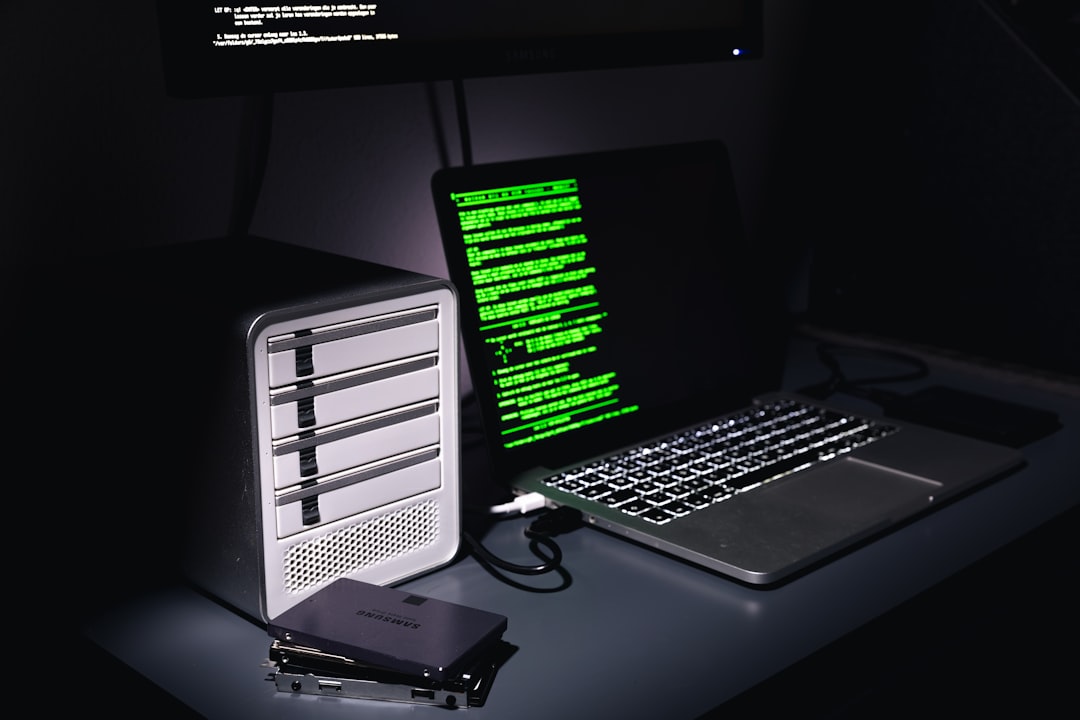As you step into the realm of technology, the intersection of artificial intelligence (AI) and cyber security presents a fascinating landscape. The rapid evolution of AI has transformed various industries, and cyber security is no exception. With the increasing frequency and sophistication of cyber threats, organizations are turning to AI to bolster their defenses.
This shift not only enhances security measures but also reshapes the job market, creating new roles while redefining existing ones. Understanding this dynamic is crucial for anyone looking to build a career in cyber security today. In this context, you may find yourself pondering the implications of AI on traditional cyber security roles.
As AI technologies become more integrated into security protocols, the demand for skilled professionals who can navigate this new terrain is on the rise. The landscape is evolving, and so must your skills and knowledge. By exploring the impact of AI on cyber security jobs, you can better prepare yourself for a future where human expertise and machine intelligence work hand in hand.
Key Takeaways
- Introduction to AI and Cyber Security Jobs:
- AI is revolutionizing the field of cyber security, creating new job opportunities and changing traditional roles.
- The Impact of AI on Traditional Cyber Security Roles:
- AI is automating routine tasks, freeing up human experts to focus on more complex and strategic security challenges.
- Advantages of AI in Cyber Security:
- AI can analyze vast amounts of data quickly, detect patterns, and identify potential threats more efficiently than humans.
- Disadvantages of AI in Cyber Security:
- AI can be vulnerable to adversarial attacks and may lack the contextual understanding and intuition of human experts.
- The Future of Cyber Security Jobs in the Age of AI:
- The demand for professionals with AI and cyber security skills will continue to grow as organizations seek to leverage AI for threat detection and response.
- Skills and Expertise Needed for AI and Cyber Security Integration:
- Professionals need a combination of technical expertise in AI and cyber security, as well as critical thinking and problem-solving skills.
- Ethical and Privacy Concerns in AI-Powered Cyber Security:
- The use of AI in cyber security raises concerns about privacy, bias, and the potential for misuse of sensitive data.
- The Role of Human Expertise in AI-Driven Cyber Security:
- Human expertise is essential for interpreting AI findings, making strategic decisions, and addressing complex, non-routine security challenges.
- Training and Education for AI and Cyber Security Professionals:
- Continuous learning and professional development are crucial for staying current with the evolving technologies and threats in AI-driven cyber security.
- Case Studies of AI Integration in Cyber Security:
- Real-world examples demonstrate how AI is being used to enhance threat detection, incident response, and security operations.
- Recommendations for Navigating the Changing Landscape of Cyber Security Jobs with AI:
- Professionals should embrace AI as a tool to augment their capabilities, stay informed about industry trends, and adapt to the evolving job requirements in AI-driven cyber security.
The Impact of AI on Traditional Cyber Security Roles
The introduction of AI into cyber security has fundamentally altered the responsibilities associated with traditional roles. For instance, tasks that once required extensive manual effort, such as threat detection and incident response, are increasingly being automated through machine learning algorithms. This shift allows cyber security professionals to focus on more strategic aspects of their roles, such as developing comprehensive security policies and engaging in proactive threat hunting.
As a result, you may find that your job description evolves to encompass a broader range of responsibilities that require critical thinking and creativity. However, this transformation also raises questions about job displacement. While some entry-level positions may diminish due to automation, new opportunities are emerging that require a blend of technical skills and an understanding of AI technologies.
You might discover that roles such as AI security analyst or machine learning engineer are becoming more prevalent, emphasizing the need for professionals who can bridge the gap between AI and cyber security. Embracing this change will be essential for your career growth in an increasingly automated environment.
Advantages of AI in Cyber Security

The advantages of integrating AI into cyber security are manifold, offering significant enhancements to threat detection and response capabilities. One of the most notable benefits is the speed at which AI can analyze vast amounts of data. Traditional methods often struggle to keep pace with the sheer volume of information generated daily, but AI algorithms can sift through this data in real-time, identifying anomalies and potential threats with remarkable efficiency.
As you consider your role in this evolving landscape, understanding how to leverage these tools will be crucial. Moreover, AI’s ability to learn from past incidents allows it to adapt and improve over time. This continuous learning process means that AI systems can become increasingly effective at predicting and preventing cyber attacks.
For you, this presents an opportunity to work alongside advanced technologies that enhance your capabilities rather than replace them. By harnessing AI’s strengths, you can contribute to a more robust security posture for your organization, ultimately making you a more valuable asset in the field.
Disadvantages of AI in Cyber Security
| Disadvantages of AI in Cyber Security |
|---|
| 1. Over-reliance on AI can lead to complacency in human analysts. |
| 2. AI can be vulnerable to adversarial attacks and manipulation. |
| 3. Lack of transparency in AI decision-making processes. |
| 4. AI may struggle to adapt to new and evolving cyber threats. |
| 5. High initial costs and resource requirements for implementing AI in cyber security. |
Despite its many advantages, the integration of AI into cyber security is not without its challenges. One significant concern is the potential for false positives and negatives in threat detection. While AI systems are designed to learn from data patterns, they are not infallible.
You may encounter situations where legitimate activities are flagged as threats or, conversely, where actual threats go undetected due to algorithmic limitations.
Additionally, there are concerns regarding the ethical implications of using AI in cyber security.
As you navigate this landscape, you must consider issues such as bias in algorithms and the potential for misuse of AI technologies. The reliance on automated systems raises questions about accountability and transparency in decision-making processes. As a professional in this field, it will be essential for you to advocate for responsible AI practices that prioritize ethical considerations while maintaining effective security measures.
The Future of Cyber Security Jobs in the Age of AI
Looking ahead, the future of cyber security jobs in an AI-driven world appears both promising and complex. As organizations increasingly adopt AI technologies, the demand for professionals who can effectively integrate these tools into their security frameworks will continue to grow. You may find that roles focused on AI governance, risk management, and compliance become more prevalent as businesses seek to navigate the regulatory landscape surrounding AI use.
Moreover, the need for continuous learning will be paramount in this evolving environment. As new threats emerge and technologies advance, staying current with industry trends and best practices will be essential for your career development. Embracing a mindset of lifelong learning will not only enhance your skill set but also position you as a forward-thinking professional capable of adapting to the changing demands of the cyber security landscape.
Skills and Expertise Needed for AI and Cyber Security Integration

To thrive in the intersection of AI and cyber security, you will need a diverse skill set that encompasses both technical expertise and soft skills.
Additionally, a solid understanding of network architecture, threat modeling, and incident response will provide a strong foundation for your role in securing systems against cyber threats.
Beyond technical skills, soft skills such as critical thinking, problem-solving, and effective communication will be equally important. As you collaborate with cross-functional teams to implement AI solutions, being able to articulate complex concepts clearly will enhance your effectiveness as a professional. Furthermore, cultivating a mindset that embraces innovation and adaptability will empower you to navigate the challenges posed by rapidly evolving technologies.
Ethical and Privacy Concerns in AI-Powered Cyber Security
As you delve deeper into the integration of AI in cyber security, it is crucial to address the ethical and privacy concerns that accompany these advancements. The use of AI raises questions about data privacy, particularly when it comes to monitoring user behavior and analyzing personal information for threat detection purposes. Striking a balance between effective security measures and respecting individual privacy rights will be a key challenge for you as a professional in this field.
Moreover, the potential for bias in AI algorithms poses significant ethical dilemmas. If not carefully managed, these biases can lead to discriminatory practices or unjust profiling in threat detection efforts. As you engage with AI technologies, advocating for fairness and transparency will be essential to ensure that security measures do not inadvertently harm individuals or communities.
By prioritizing ethical considerations in your work, you can contribute to building trust in AI-powered solutions within the cyber security landscape.
The Role of Human Expertise in AI-Driven Cyber Security
While AI offers powerful tools for enhancing cyber security efforts, human expertise remains irreplaceable in many aspects of this field. Your ability to think critically and creatively is essential when interpreting data insights generated by AI systems. While machines excel at processing information quickly, they lack the nuanced understanding that comes from human experience.
This means that your role will involve not only leveraging AI tools but also applying your judgment to make informed decisions based on their outputs. Furthermore, collaboration between human experts and AI systems can lead to more effective outcomes than either could achieve alone. As you work alongside advanced technologies, your insights can help refine algorithms and improve their accuracy over time.
Emphasizing this partnership between human intelligence and artificial intelligence will be vital as you navigate the complexities of modern cyber security challenges.
Training and Education for AI and Cyber Security Professionals
To prepare yourself for a successful career at the intersection of AI and cyber security, investing in training and education is paramount. Formal education programs that focus on both fields can provide you with a comprehensive understanding of the principles underlying cyber security while equipping you with the technical skills needed to work with AI technologies. Consider pursuing degrees or certifications that emphasize machine learning applications within cyber security contexts.
In addition to formal education, engaging in continuous professional development through workshops, online courses, and industry conferences will keep you abreast of emerging trends and best practices. Networking with other professionals in the field can also provide valuable insights into real-world applications of AI in cyber security. By actively seeking out opportunities for growth and learning, you can position yourself as a knowledgeable expert ready to tackle the challenges posed by an evolving landscape.
Case Studies of AI Integration in Cyber Security
Examining case studies of successful AI integration in cyber security can provide valuable insights into best practices and innovative approaches within the field. For instance, organizations like Darktrace have leveraged machine learning algorithms to create self-learning systems capable of detecting anomalies within network traffic patterns autonomously. By analyzing vast amounts of data in real-time, these systems can identify potential threats before they escalate into significant incidents.
Another notable example is IBM’s Watson for Cyber Security, which utilizes natural language processing to analyze unstructured data from various sources such as blogs, forums, and research papers. This capability allows organizations to gain insights into emerging threats while enhancing their overall situational awareness. By studying these case studies, you can gain inspiration for how to effectively implement AI solutions within your own organization while understanding the potential challenges that may arise during integration.
Recommendations for Navigating the Changing Landscape of Cyber Security Jobs with AI
As you navigate the changing landscape of cyber security jobs influenced by AI advancements, several recommendations can help guide your journey. First and foremost, embrace a mindset of adaptability; being open to learning new skills and technologies will be crucial as the field continues to evolve rapidly. Seek out opportunities for hands-on experience with AI tools through internships or projects that allow you to apply theoretical knowledge in practical settings.
Additionally, prioritize building a strong professional network within both the cyber security and AI communities. Engaging with peers and industry leaders can provide valuable insights into emerging trends while opening doors for collaboration on innovative projects. Finally, advocate for ethical practices within your organization by promoting transparency and fairness in AI implementations—this commitment will not only enhance your credibility but also contribute positively to the broader industry landscape.
In conclusion, as you embark on your journey through the intersection of artificial intelligence and cyber security jobs, remember that this evolving landscape presents both challenges and opportunities. By equipping yourself with the necessary skills, embracing continuous learning, and advocating for ethical practices, you can position yourself as a valuable contributor to an industry poised for transformation.
In the rapidly evolving field of cybersecurity, the question of whether AI will take over jobs traditionally held by human experts is becoming increasingly pertinent. As AI technologies advance, they offer the potential to enhance security measures by quickly identifying and responding to threats. However, this also raises concerns about the future role of human cybersecurity professionals. An interesting perspective on this topic can be found in a related article on the potential impact of AI on various industries, including cybersecurity. For more insights, you can read the article on How Wealth Grows, which explores the balance between AI integration and human expertise in maintaining robust cybersecurity defenses.
FAQs
What is AI?
AI, or artificial intelligence, refers to the simulation of human intelligence in machines that are programmed to think and act like humans. This includes tasks such as learning, problem-solving, and decision-making.
Will AI take over cyber security jobs?
AI is expected to play a significant role in the field of cyber security, but it is unlikely to completely take over cyber security jobs. Instead, AI is more likely to augment the work of cyber security professionals by automating routine tasks, analyzing large amounts of data, and identifying potential threats.
How will AI impact cyber security jobs?
AI is expected to impact cyber security jobs by automating repetitive tasks, improving threat detection and response times, and enhancing overall security measures. This will allow cyber security professionals to focus on more complex and strategic aspects of their roles.
What are the benefits of AI in cyber security?
The benefits of AI in cyber security include improved threat detection and response, faster incident response times, enhanced data analysis capabilities, and the ability to handle large volumes of security data more efficiently.
What are the limitations of AI in cyber security?
Some limitations of AI in cyber security include the potential for AI systems to be manipulated or deceived by sophisticated cyber attacks, the need for ongoing human oversight and intervention, and the potential for AI to create new security vulnerabilities if not implemented and managed properly.
